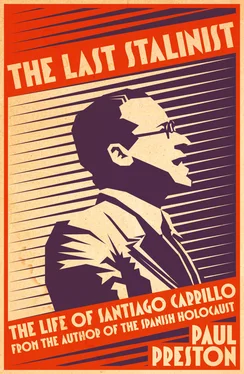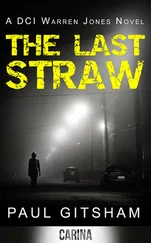In April 1938, Franco’s forces had reached the Mediterranean and split the Republican zone in two. By the summer, the Republic was edging to defeat, with Valencia under direct threat. The Prime Minister, Juan Negrín, decided to mount a spectacular counter-offensive to stem the continual erosion of territory. To restore contact between the central zone and Catalonia, an assault across the River Ebro was planned by his chief of staff General Vicente Rojo. In the most hard-fought battle of the entire war, Franco poured in massive reinforcements in reaction to the initial Republican success in advancing to Gandesa. For over three months, he pounded the Republicans with air and artillery attacks in an effort to turn Gandesa into the graveyard of the Republican army. Negrín hoped that the Western democracies would finally see the dangers facing them from the Axis. Before that could happen the Republic was virtually sentenced to death by the British reaction to the Czechoslovakian crisis. The Munich agreement destroyed the Republic’s last hope of salvation in a European war. By mid-November, the decimated remnants of the Republican army, led by Manuel Tagüeña, abandoned the right bank of the Ebro. The Republic had lost the bulk of its army and would never recover.
In response to food shortages and conscription of ever younger recruits, demoralization was rife. The deteriorating conditions saw a growth of anti-communism. One symptom of this was the effort being made from the autumn of 1938 by the Socialist Party executive to re-establish a separate Socialist Youth. The JSU organizations of Valencia, Alicante, Albacete, Murcia, Jaen and Ciudad Real were in favour of returning to the old FJS model. Carrillo’s knee-jerk, and futile, response was to denounce the dissidents as Trotskyists. His alarm was understandable since JSU members made up a high proportion of the Republican armed forces. The fact that Serrano Poncela played a key role in this crisis, writing a critical report on the JSU passed to the PSOE executive in 1938, perhaps explains Carrillo’s long-term resentment of him. 145When the JSU headquarters in Alicante were taken over by supporters of Largo Caballero, the FJS was reconstituted. Busts of Lenin and large portraits of Carrillo were destroyed in an iconoclastic venting of rage. 146
After the Ebro, and the end of any reasonable hope of victory, war-weariness overwhelmed the Republican zone. Hunger, privation and the scale of casualties took their toll and much of the frustration was visited on the PCE and the JSU. In October, Carrillo and Pedro Checa were sent to Madrid in an attempt to reverse the process whereby anti-communism was undermining what remained of a war effort. They found not only a generalized fatigue but the determined hostility of the leadership of both the PSOE and the CNT. When the Francoists bombed Madrid with loaves of fresh white bread, JSU militants burned them in the streets. Given the scale of hunger suffered by the Madrileños, this was a less successful gesture than Carrillo later claimed. While in the capital, Santiago heard that his father was actively working with the anti-Negrín elements in the PSOE. They had a monumental row over Wenceslao’s claim that the only solution was to seek an honourable surrender. 147
Just before Christmas 1938, Franco launched a final offensive armed with new German equipment. His reserves were sufficient for his troops to be relieved every two days. Carrillo and others were sent to Barcelona in the vain hope that they might be able to organize the kind of popular resistance that had saved Madrid in November 1936. His days were spent commuting to the front trying to keep up morale, but the shattered Republican army of the Ebro could barely fight on. He also worked with militants of the Catalan JSU in an effort to organize popular resistance. Barcelona fell on 26 January 1939. Carrillo claimed later that he was still in the Catalan capital as the Francoists approached and did not leave until they were near the city centre. His own accounts are the only source for his claims that, as he headed north, he was nearly captured by Francoist troops in Girona on 4 February. Shortly afterwards, he crossed the French frontier. 148The same is true of his assertion that he was anxious to return to Madrid not only to continue the fight but to be reunited with his wife, Asunción ‘Chon’ Sánchez Tudela, and their one-year-old daughter, Aurora. They had married shortly before the outbreak of the Civil War. He was particularly anxious since Chon had heart problems and Aurora was weak as a result of consistently poor nutrition in the first year of her life. 149Why Carrillo did not go back to Madrid and what happened to Chon and Aurora at the end of the war are issues clouded in mystery, as will be explained in the next chapter.
Hundreds of thousands of hungry and terrified refugees from all over Spain left the Catalan capital and began to trek towards France. A huge area of about 30 per cent of Spanish territory still remained to the Republic, but the population was afflicted with ever deepening war-weariness. Although further military resistance was virtually impossible, the Communists were determined to hold on to the bitter end. On the one hand, this was important to their Russian masters as a way of delaying inevitable fascist aggression against the Soviet Union. 150It would also allow them to derive political capital out of the ‘desertion’ of their rivals. In fact, they were far from alone in the belief that, given the determination of Franco to carry out a savage repression, it was crucial to resist in the hope of the Western Powers waking up to the fascist threat. However, the Communists were seen as the main advocates of dogged resistance, and they thereby became the target of the popular resentment, frustration and war-weariness. In contrast, the determination of non-Communist elements to make peace on the best possible terms was immensely attractive to the starving populations of most cities in the Republican zone.
In France, Carrillo missed the coup launched on 5 March by Colonel Segismundo Casado, commander of the Republican Army of the Centre. Casado thought that he could put a stop to the increasingly senseless slaughter. Together with Wenceslao Carrillo and Julián Besteiro, and with anarchist leaders, Casado formed an anti-Communist National Defence Junta (Consejo Nacional de Defensa) under the presidency of General Miaja. Casado wrongly believed that this would facilitate negotiation with Franco, with whose representatives he had been in touch. In fact, he sparked off a disastrous civil war within the Republican zone, ensured the deaths of many Communists and undermined the evacuation plans for hundreds of thousands of Republicans. In Paris on 7 March, a Party comrade, Luis Cabo Giorla, gave Carrillo two pieces of bad news. He told him about the coup and his father’s role therein and also that his mother had died some weeks before. Carrillo’s reaction, a virulent denunciation of his own father, would be among the most revealing episodes of his life. 151
3
A Fully Formed Stalinist: 1939–1950
With the Civil War still raging, Carrillo remained in France along with other members of the politburo. The prominent Communist General Enrique Líster later claimed that his place should have been back in the central zone where the majority of the JSU’s militants were to be found. However, Carrillo did not accompany Líster and some members of the politburo to Spain on the night of 13 February 1939. Interviewed in 1974, he claimed that he had wanted to return to Spain but had been prevented by a series of reasons. The most implausible of these was that the politburo wished to ensure that he would not find himself fighting against his own father. Carrillo had been in France for nearly six weeks when he learned of the coup carried out by Colonel Segismundo Casado on 5 March. Casado’s anti-Communist Junta included Wenceslao Carrillo as Councillor for Public Order, an ironic echo of his son’s role in 1936 – the irony being that it was Wenceslao’s mission to hunt down Communists. Santiago claimed in 1974 that the news of his father’s involvement with Casado had upset him more than did that of the death of his mother which he had received at the same time. News of the coup could hardly explain why Carrillo had not returned to Spain three weeks earlier. Hardly more plausible was his claim that he could not travel because there was no room on any aircraft flying to Alicante. Líster pointed out that the thirty-three-seat aircraft in which he travelled on 13 February had twenty empty seats. The head of the Republican air force, Ignacio Hidalgo de Cisneros, told Burnett Bolloten that the last six aircraft that flew from France to Republican Spain were ‘nearly empty’. The most likely of Carrillo’s three excuses, which did little for his attempts to construct an heroic past, was that he had been unable to travel because he had scabies. Since Manuel Tagüeña believed that Carrillo had just ignored orders to return, scabies may well have been the excuse that he gave to his superiors. 1
Читать дальше












